It’s been seven years since people in the U.S. have gotten to experience a total solar eclipse — a lineup of the sun, the moon and Earth in which the moon is directly between the other two. In a total eclipse, the moon’s shadow completely covers the sun.
On April 8, Americans will have another chance to witness this awesome phenomenon. The path of totality will go through parts of 13 states (Texas, Oklahoma, Arkansas, Missouri, Kentucky, Illinois, Indiana, Ohio, Pennsylvania, New York, Vermont, New Hampshire and Maine).
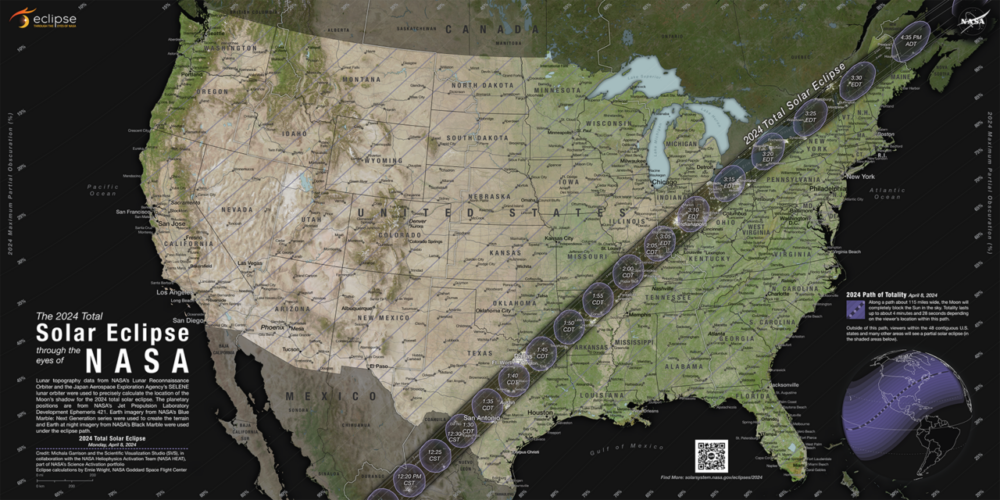
If you live in one of those states, you may be considering the best viewing spot. A national park is an excellent option, and the path of totality will cross over 27 of them. Here are 10 national parks that are not only open for viewing the eclipse but have special events planned around it.
1. Lyndon B Johnson National Historical Park, Texas
Visitors to this park can see the eclipse starting at 12:15 p.m. CDT, with totality at 1:33 p.m. and lasting for 4 minutes and 14 seconds. But you should arrive much earlier than that (it’s open from 6 a.m. to 10 p.m.). As the park notes, Texas has the best chance of enjoying good weather on the day of the eclipse and 500,000 people are expected to arrive in the region to see it. A good percentage of those will probably be headed to a park like this for prime viewing conditions.
Entrance into both the state and national park is free, but it’s on a first-come, first-served basis. Once the parking lot is full, cars will be turned away. You will be able to buy solar eclipse glasses in the gift shop, though supply is limited. Visit the website for more details and view this video from the park.
2. Amistad National Recreation Area Park, Texas
You’ll want to get to this park by 12:10 p.m. to see the partial eclipse. Totality begins at 1:28 p.m. CT and lasts for 3 minutes and 25 seconds. Anticipate crowds and traffic and arrive early, as parking both in the park and in nearby downtown Del Rio is limited.
Park rangers will be at the Diablo East Marina to help you view the total solar eclipse and answer questions. They’ll also provide free certified eclipse glasses and Eclipse Junior Ranger activity books (while supplies last). For more information visit the park’s website or its Facebook page.
MORE:This interactive map shows the best time to see the solar eclipse in your city
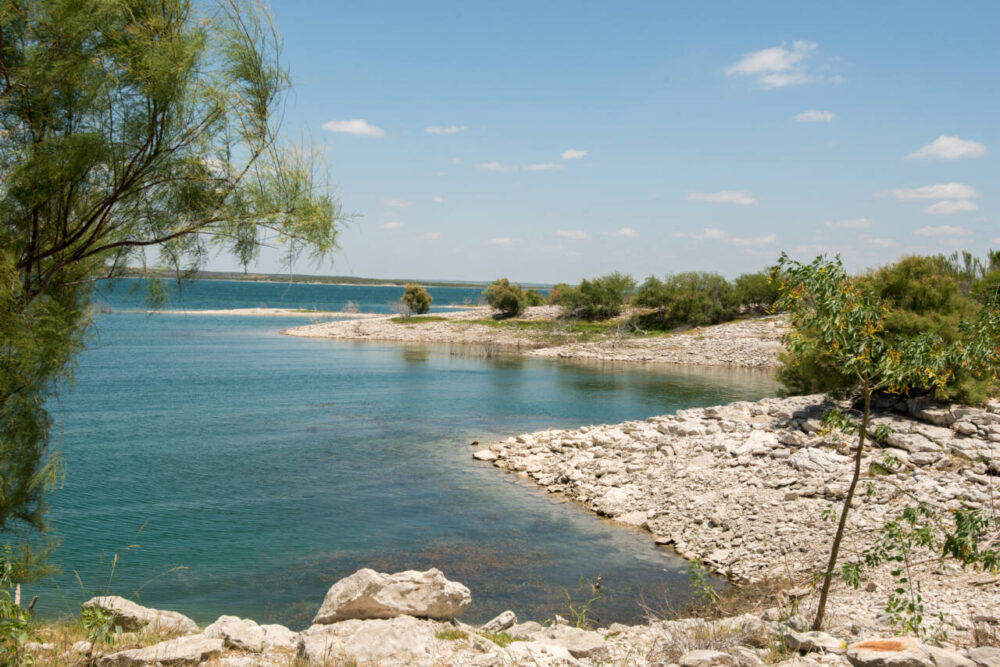
3. Buffalo National River, Arkansas
At this park, the partial solar eclipse begins at 12:35 p.m. CT and totality happens at 1:52. It will last approximately 3 and a half minutes. But the eclipse’s duration will be shorter on the western side of the park and longer in its eastern portions.
In the days leading up to the eclipse, the park will host interpretive night sky programs and junior ranger programs, which are free and open to all ages. Attendees will learn about how scientists plan to study and investigate the 2024 eclipse. Visit the website for more information and allow plenty of time for travel.
According to the park’s Facebook page, you can get solar-safe viewing glasses at the Tyler Bend and Buffalo Point Contact Stations starting Saturday, April 6, while supplies last (one per person).
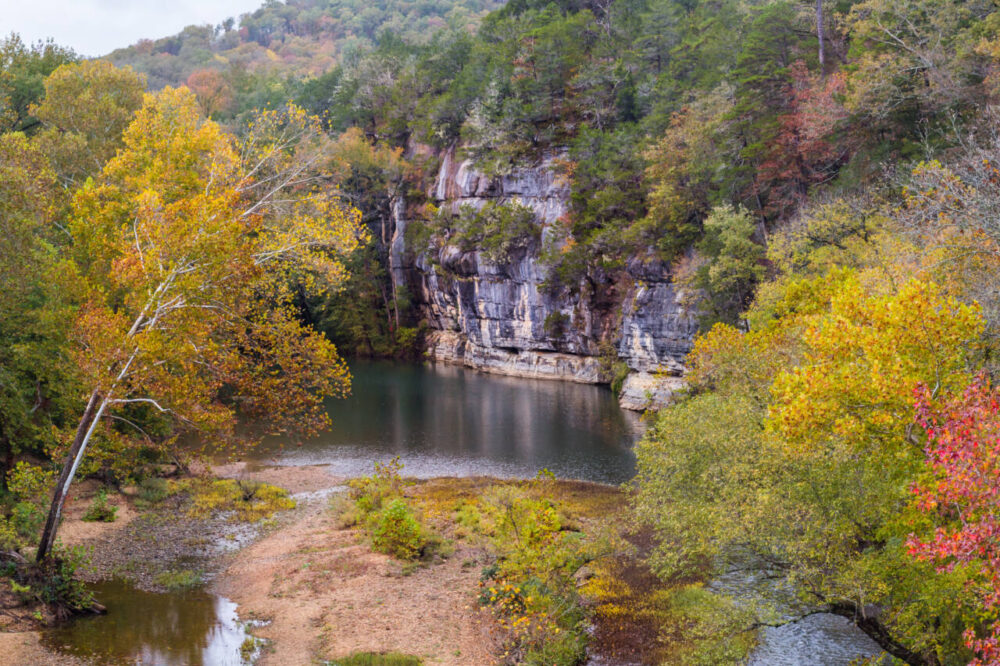
4. Hot Springs National Park, Arkansas
In this park, the total solar eclipse will begin at 1:49 p.m. CT and will last 3 minutes and 39 seconds. Parking is limited, so arrive early. You’ll want to get there before 12:30 p.m. to see the whole thing. Hot Springs National Park is one of the hosting sites for the Junior Ranger Eclipse Explorer program, which offers badges, booklets and educational activities to help kids learn about the eclipse.
The park is planning a free Eclipse Fest on April 6 and 7, so you can enjoy an entire eclipse-themed weekend, but this means road closures will take place then as well. Visit the website for details on shuttles, operations and more. Some activities are listed in this Facebook post.
5. Ozark National Scenic Riverways, Missouri
At this park, the solar eclipse will start at 12:39 p.m. CT, with totality taking place just after 1:55 p.m. and lasting for about two and a half minutes. The park is hosting a free viewing event called “Zark Side of the Moon” that begins at 10 a.m. and goes to 4 p.m. at Big Spring, south of the town of Van Buren. A whole slate of eclipse-related activities is happening in the days leading up to the event, too. This park is also one of the sites hosting the Junior Ranger Eclipse Explorer program. Check the website for details.
There are actually many places to watch the eclipse at Ozark National Scenic Riverways Park. Along with viewing at Big Spring, visitors can gather at a ranger booth at Alley Spring, which also has free eclipse glasses available. And there are trails, campgrounds and riverside locations in more remote areas.
Ozark National Scenic Riverways provides lots of information about the eclipse on its Facebook page.
6. Lincoln Boyhood National Memorial, Indiana
At this park, totality will begin at 2:05 p.m. CT and lasts for 2 minutes and 11 seconds. If you want to see the whole eclipse, you should arrive before 1:30 p.m.
In the two days leading up to the big event and on the day of, the Lincoln Boyhood National Memorial Visitor Center will offer hands-on activities and demonstrations. These will include a Star Party in which participants can study the night sky as well as various Junior Ranger programs related to the eclipse.
Visit the website and the Facebook page for more details and a full slate of events.
7. Dayton Aviation Heritage National Historic Park, Ohio
At this park, totality begins at 3 p.m. ET, and there are watch parties taking place from 1-4 p.m. in several areas. The park also has some eclipse-related events ahead of April 8, starting with a March 30 talk on the subject by astronomer Dean Regas.
On the day of, the Wright-Dunbar Interpretive Center and Aviation Trail Parachute Museum will offer an Eclipse Junior Ranger activity, a NASA livestream, eclipse-related presentations from space education experts, and a live viewing of the total solar eclipse through smart telescopes, among other events. Free solar eclipse viewing glasses will be available.
Additional offerings will happen at the Wright-Patterson Air Force Base and the Replica Hangar site at Huffman Prairie. For more information, visit the website or the Facebook page.
MORE: Here’s the ultimate road trip to visit most of the national parks
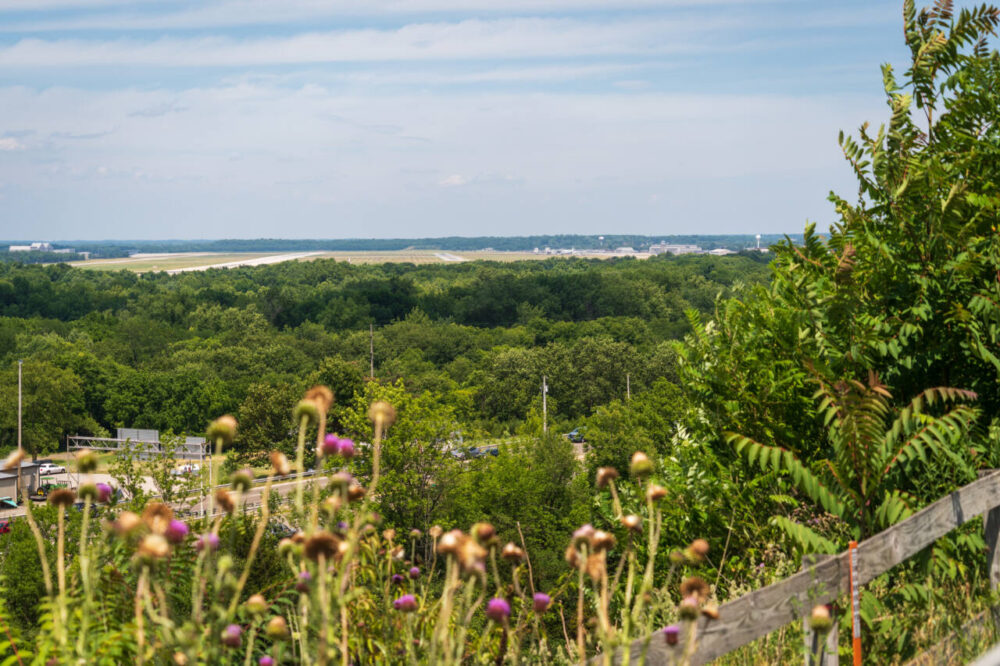
8. Perry’s Victory and International Peace Memorial, Ohio
At this park, the totality phase of the solar eclipse will begin at 3:10 p.m. ET and last for 3 minutes and 18 seconds. The Memorial usually doesn’t open until May, but on April 8 this prime eclipse-viewing spot will be open for guests. The visitor center, which will have free viewing glasses available while supplies last, will open from 10 a.m.-5 p.m.
Perry’s Victory and International Peace Memorial is one of the hosting sites for the Junior Ranger Eclipse Explorer program, with plenty of activities for kids. And there are other events scheduled and detailed on the website and the Facebook page.
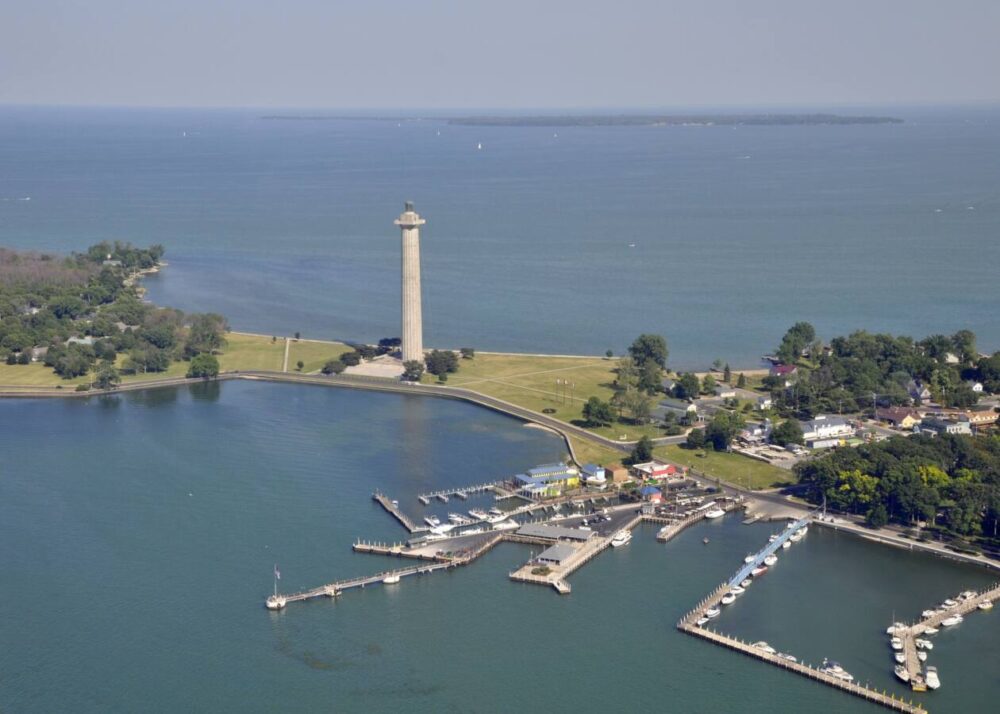
9. Women’s Rights National Historic Park, New York
At this park, the totality phase takes place from 3:21-3:24 p.m. ET. There’s a free viewing party with plenty of activities from 1-4 p.m. on the lawn of the Elizabeth Cady Stanton House in Seneca Falls. An Elizabeth Cady Stanton impersonator will be on hand to discuss her life. Possibly she’ll mention that the last time a total solar eclipse was visible over Seneca Falls (in January of 1925), women had only had the right to vote for about four years.
Eclipse viewing glasses will also be distributed for free. For more info, visit the website or the Facebook page.

10. Katahdin Woods and Waters National Monument, Maine
At this park, the total solar eclipse will be visible at 3:31-3:35 p.m. ET. But April is mud season in this section of Maine, and access to the park is limited. You’ll need to be aware of closures and adverse road conditions, as the operating season doesn’t begin until May, so maintenance will have been minimal.
Park rangers will be hosting family-friendly events at various spots around the Katahdin region in the days leading up to April 8, and there will be a big event called the Island Falls EclipseFest about an hour away from 12-6 pm throughout the weekend and on the day of. Visit the park’s website for more information.
You can see the total solar eclipse from these national parks originally appeared on Simplemost.com


